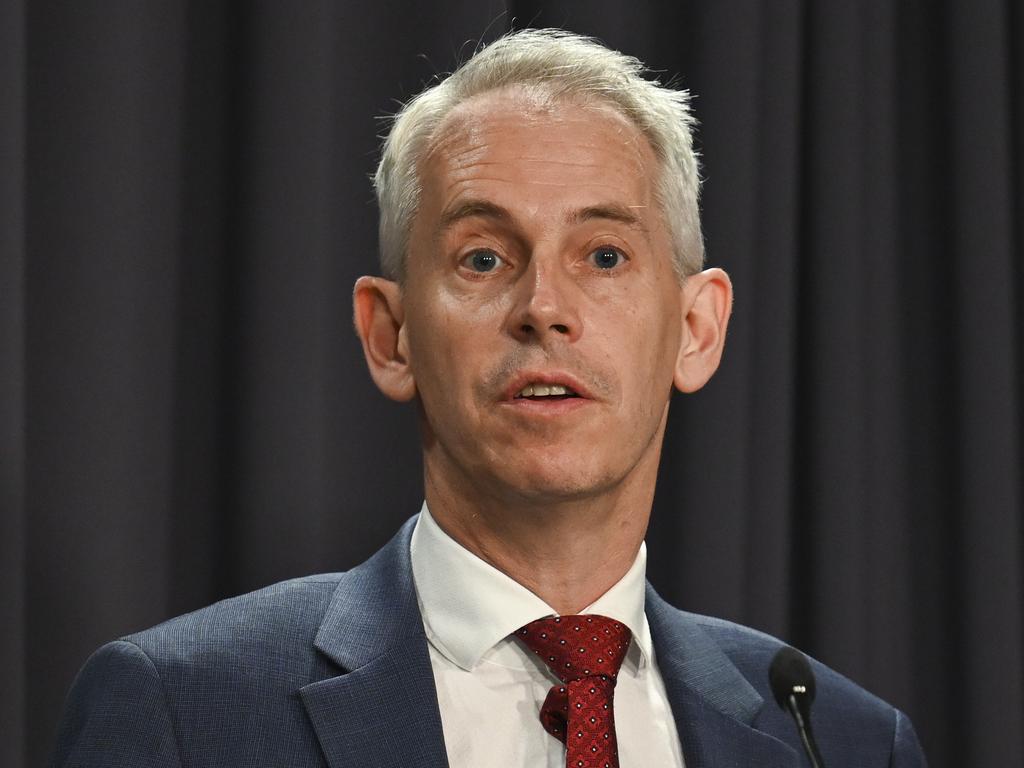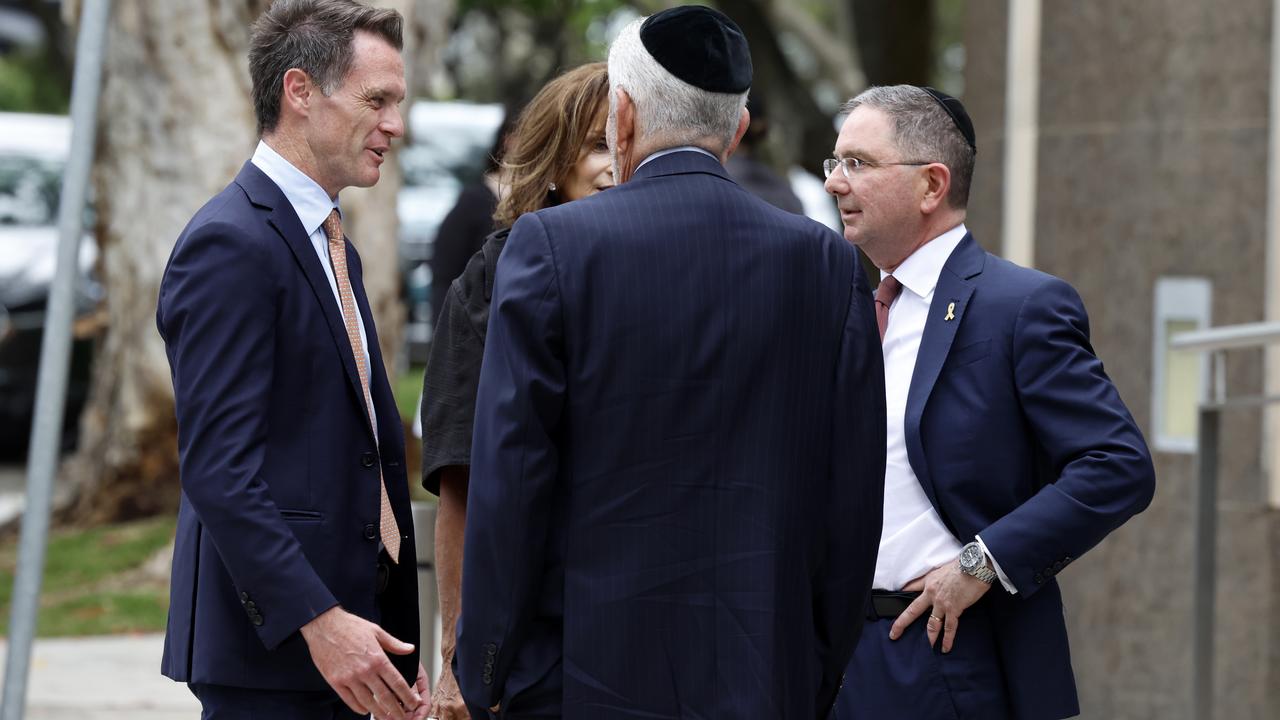Andrew Giles hoped Direction 99 would punish DV perpetrators. It didn’t
Andrew Giles introduced Direction 99 in time for International Women’s Day in 2023. The idea — to make it harder for domestic violence offenders to stay in Australia — has been a catastrophe.

Immigration Minister Andrew Giles believed that Direction 99 would make it harder for domestic violence perpetrators to remain in Australia. In practice, however, the opposite has been true.
Documents released under Freedom of Information on Tuesday night showed that Mr Giles and the Department of Home Affairs chose March 8, 2023 as the start date for Direction 99 to coincide with International Women’s Day and the lead-up to Harmony Week.
“Issuance of the Ministerial Direction during this time would send a strong message to the community regarding the Government’s commitment to combat family violence and protect women, particularly those from culturally and linguistically diverse (CALD) communities,” the correspondence from Home Affairs to Mr Giles, dated 8 September 2022, read.
The Australian’s review of decisions handed down by the Administrative Appeal Tribunal since Direction 99 came into effect, however, has identified multiple cases in which serious, repeat domestic violence offenders have been spared deportation.
Repeat offender’s ‘ties to Australia’ prevented deportation
One of those cases – that of Sefanaia Mitiani Tavola, whose long criminal record includes multiple counts of domestic violence-related assaults – AAT deputy president Dennis Cowdroy explicitly stated that Direction 99’s instruction to consider an individual’s ties to Australia was the only reason the Fiji national was spared deportation.
“The Tribunal concludes that, taking into account that the Applicant has resided in Australia since he was five years of age, was educated in Australia, has never returned to Fiji, has worked in employment in Australia, and has provided some positive contribution to his community in Australia, it would be contrary to the requirements of paragraphs 8.3(4)(a)(i) and (ii) of the Direction not to revoke the decision under review, irrespective of the Applicant’s criminal offending,” Mr Cowdroy wrote.

“But for paragraph 8.3 of the Direction (strength, nature and duration of ties to Australia), the Tribunal would have come to a different conclusion.
Among those allowed to remain in Australia at least in part due to Direction 99 are Ashley Thompson, who was sentenced to 27 months in jail over an episode of domestic violence in which he violently assaulted his pregnant wife and took their 10-month old baby in the car during a police pursuit. The convictions following that incident included unlawful assault, theft, dangerous driving while pursued by police, trafficking methamphetamine, making a threat to kill, and resisting an emergency worker on duty.
‘Significant weight’ given to Direction 99
In considering Thompson’s case, the AAT noted that he had come to Australia from New Zealand when he was four years old and had not left the country since. Thompson also told the Tribunal that he identifies as Aboriginal.
“With respect to ties to Australia, I place significant weight on the fact that the applicant has spent the majority of his life in Australia including those formative years which he spent with the Yorta Yorta people,” the decision by AAT deputy president Peter Britten-Jones read.
“His ties to the Yorta Yorta country and community add significant weight to this primary consideration. This is a factor that weighs very heavily in favour of revocation of the cancellation decision.”
Denley Rawiri-Pukeroa, who moved to Australia from New Zealand when he was 19, also escaped deportation despite a history of domestic violence offences including common assault; stalking and intimidating; using a carriage service to menace, harass or offend; and breaching an AVO.
In one incident, he admitted punching and kicking his partner after she put on a song that “set him off”. His children witnessed the incident, with one of them screaming “stop killing mummy”.
But the tribunal ruled that his ties to Australia and the interests of his children weighed heavily in favour of revoking his visa cancellation.
“Although the Tribunal accepts that the Applicant has previously exposed his children to family violence the Tribunal considers that the Applicant remains capable of being an effective parental figure and can be a positive role model for his children in the future,” the Tribunal found.

Kiwi national assaulted disabled three-year-old
New Zealand national Troy Olaman, who has lived in Australia since he was 17, was imprisoned in 2022 after being convicted for a second time of assaulting his partner’s disabled three-year-old child.
“The police observed that the child had bruises under both eyes, a bruise on his forehead and bruising on top of his eye,” the AAT decision said.
He had also been convicted over an incident in which he dragged his partner to their bedroom and lifted her off the ground by her hair, and another in which he pushed his partner out of a stopped vehicle.
The Tribunal found it was not satisfied that Olaman was rehabilitated, but nevertheless found that Olaman’s ties to Australia weighed “heavily” in favour of revoking the cancellation of his visa given both his mother and his son live in Australia.

Rum bottle used in attack on girlfriend
Also spared deportation was a Democratic Republic of Congo national known only as HWGF, who also had multiple convictions of assaults against female partners. In one incident, he smashed an empty rum bottle over his girlfriend’s head, causing a laceration.
The tribunal found, again, that the strength of his ties to Australia weighed strongly in favour of overturning his visa cancellation.
“The Tribunal considers that although there are strong countervailing considerations weigh against revoking the Cancellation Decision, including the protection of the Australian community, family violence and the expectations of the Australian community, these are outweighed in the Applicant’s case by the primary and other relevant considerations weighing in favour of revoking the Cancellation Decision, namely the best interests of minor children impacted by the decision, the strength nature and duration of the Applicant’s ties to the Australian community, the legal consequences of the decision, the extent of impediments if removed to the DRC and impact of the decision on victims of his offending,” the decision by AAT senior member Simone Burford said.

History of violence ignored
New Zealand citizen Dawson Rawiri also had his visa cancellation revoked despite an extensive history of domestic violence.
He had convictions relating to incidents in which he punched his wife in her face and split her eyelid, and an assault on his 15-year-old son in which he grabbed him by the hair and pulled him to the ground, and then chased him with a broken table leg.
He also had three convictions of contravening an AVO against him from wife, with the AAT noting that there was “a real risk he may reoffend”.
But the tribunal yet again found that the strength of Rawiri’s ties to Australia – where he had moved at the age of 27 – and his five adult children here weighed in favour of restoring his visa.
Mr Giles is under mounting pressure to stand down over the botched direction, or at least rescind the order.







